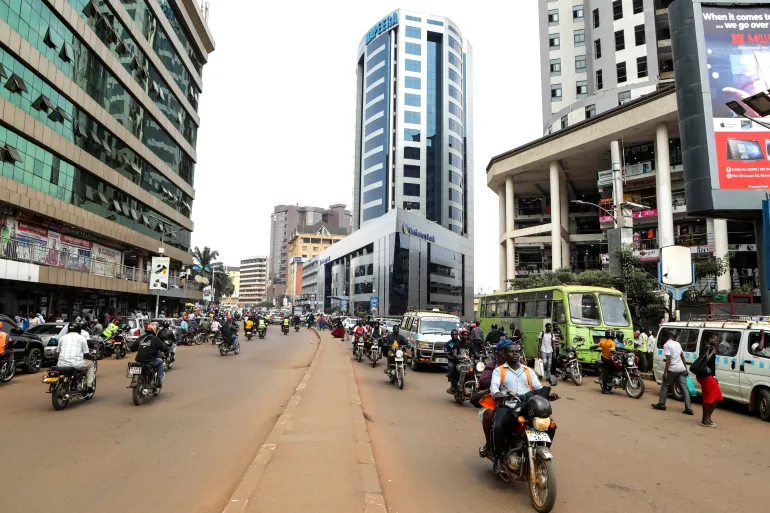The Whole Scheme Stinks: Ugandans Question Secretive Deal to Accept U.S. Deportees

A controversial agreement between Uganda and the Trump administration to receive deportees from the United States—potentially including high-profile detainee Kilmar Abrego Garcia—has sparked a wave of criticism in Uganda, with opposition lawmakers and civil society figures denouncing the deal as opaque and politically motivated.
Ugandan lawmakers have voiced outrage over the lack of parliamentary oversight and transparency, raising concerns that the East African nation is being used as a political bargaining chip amid President Donald Trump’s aggressive anti-immigration campaign.
Controversy Over Deportee Deal
Few details about the agreement have been officially released. Ugandan authorities have stated they prefer to receive deportees of African origin and not individuals with serious criminal records. However, leaked information suggests that the U.S. is pushing to deport Kilmar Abrego Garcia—a Salvadoran national and Maryland resident—to Uganda.
Abrego Garcia, who has an American wife and children, was granted protected legal status in 2019 after a U.S. judge ruled he could face harm if returned to El Salvador. Despite that, he was mistakenly deported earlier this year as part of Trump’s immigration crackdown. His lawyers say he was severely beaten and psychologically tortured while held in El Salvador’s notorious CECOT mega-prison. U.S. officials later admitted his removal was due to an “administrative error.”
This week, Abrego Garcia was again detained by immigration authorities in Baltimore. The Department of Homeland Security stated he is now being “processed for removal to Uganda.”
Political Motives Suspected
“This whole scheme stinks,” said Mathias Mpuuga, former leader of the opposition in Uganda’s Parliament. “Uganda is already struggling to support refugees from neighboring conflicts. How are we now becoming a dumping ground for U.S. deportees?”
Critics allege that President Yoweri Museveni’s administration entered the deal without public consultation or parliamentary approval. Some see it as a move to curry favor with the Trump administration amid rising international pressure over Uganda’s deteriorating human rights record.
“This makes sense only as economic expediency,” said Ibrahim Ssemujju, a prominent opposition MP. “Museveni will be happy to oblige, especially with the U.S. sanctions hanging over his government.”
Uganda’s Ministry of Foreign Affairs initially dismissed reports of a deal as “complete rubbish.” But just a day later, the ministry’s permanent secretary confirmed that an agreement was in place to accept deportees who are “reluctant to or may have concerns about returning to their countries of origin.”
Uganda’s Deteriorating Rights Record
Human rights organizations have long accused Museveni’s government of authoritarianism, corruption, and abuse of power. The 79-year-old leader, who has ruled Uganda for nearly 40 years, faces mounting criticism for unlawful killings, arrests of opposition leaders, and media suppression.
Relations with Washington have grown tense in recent years. Under former President Joe Biden, the U.S. imposed sanctions on several high-ranking Ugandan officials over corruption, election interference, and LGBTQ rights violations—sanctions that remain in place under Trump’s administration.
Uganda drew international condemnation in 2023 after passing one of the world’s harshest anti-LGBTQ laws, prompting widespread human rights concerns. A May 2025 Human Rights Watch report accused the government of fueling “discrimination, violence, and misinformation” against LGBTQ communities.
Among those sanctioned by the U.S. are Speaker of Parliament Anita Among, a close ally of Museveni, as well as the country’s prisons chief and several former security and military officials.
What Uganda Stands to Gain
Despite domestic backlash, some analysts believe Museveni sees strategic advantages in the deportation deal.
“Museveni is looking for a way back into Washington’s good graces,” said Marlon Agaba, Executive Director of the Anti-Corruption Coalition Uganda. “He sees this as a political opportunity—and potentially an economic one, if it leads to better trade terms.”
“The Trump administration is all about transactional diplomacy,” Agaba added. “And any strongman understands that kind of deal-making.”
Similar deportation arrangements are reportedly underway with other African countries. In July, the U.S. deported five individuals to Eswatini and eight to South Sudan. Rwanda has also agreed to receive up to 250 deportees under similar terms.
Still, many Ugandans remain skeptical.
“We deserve answers,” Mpuuga said. “We cannot sell our sovereignty behind closed doors.”



